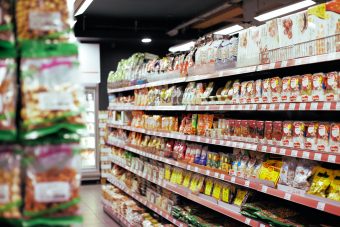
“What exactly happens between the farm and the table?”
Each year, 17 percent of total global food available at retail may be wasted, including 11 percent at the household level, says the United Nations Environment Programme (UNEP’s) Food Waste Index Report 2021.
Finding out how our food is distributed and reaches our plates could help reduce food loss and waste and accelerate the transition to sustainable food systems.
At the first-ever UN Food Systems Summit last month, UNEP jointly developed a pair of coalitions –‘Food is Never Waste’ and ‘Healthy Diets from Sustainable Food Systems’ – to help cut food loss and ensure access to healthy diets.
The Summit also saw nearly 300 commitments from hundreds of thousands of people worldwide to accelerate action and transform food systems.
Experts say successful policymaking will rely on improving consumer knowledge.
“Our understanding of food systems is incomplete,” says UNEP Programme Manager James Lomax. “Most existing data focus on agriculture – where the food chain begins. At the other end of that chain, individual choices and consumption patterns are fragmented.”
More:
The “middle part” of the food chain is less visible, notes Lomax. “Consumers may not know how food reaches their plates or be aware of the health and environmental consequences of their dietary choices.”
Information enables better decision-making
Consumers play an essential role in shaping the global food system through the decisions they make in grocery stores, restaurants and in their homes. To improve consumer decisions and positively impact human and planetary health, consumers need access to more information about their food and a deeper understanding of the “middle part.”
Eco-labelling is one solution. This system identifies products that meet low environmental impact criteria and provides insight into the process to facilitate consumer decision-making. It provides an incentive for producers to review their own performance and communicate product sustainability credentials. In Latin America, UNEP’s Sustainable Public Procurement and Ecolabelling project is helping consumers to learn more about the production and management of the products they purchase.
Costa Rica developed the first product category rule to measure the environmental impact of coffee production against international standards – for planting, packaging, harvesting, grinding, packaging and distribution – and is now developing a new eco-labelling norm for its domestic sale. It is also working on new category rules to measure the environmental footprint of bottled water, malt-based drinks and bakery products.
Eco-labelling is part of a global transition towards sustainable development, and its importance is widely recognized. Building on the principles adopted at the UN Conference on Environment and Development held in Rio de Janeiro in 1992, the Johannesburg Plan of Implementation Articulates the need to “develop and adopt, where appropriate, on a voluntary basis, effective, transparent, verifiable, non-misleading and non-discriminatory consumer information tools to provide information relating to sustainable consumption and production”.
Source:UNEP



